Sign up for our Book Club newsletter
Get the latest news, events and more from the Los Angeles Times Book Club, and help us get L.A. reading and talking.
You may occasionally receive promotional content from the Los Angeles Times.

L.A. is lonely, or so we hear. And writers just want to be alone. Don’t believe a word of it. From the San Gabriel Valley, where a rotating crew of up to 30 writers gathers to prowl the plazas in search of global cuisines, to the backyards of Hancock Park, where young-adult novelists escape their kids for a few precious hours of gossip, and on to Long Beach and Los Feliz and beyond, you can easily find writers connecting, commiserating and debating the books they love or love to hate. As part of our Lit City project on literary Los Angeles, The Times spent February snooping on five such gatherings — hopeful signs of a post-pandemic literary-social Renaissance.
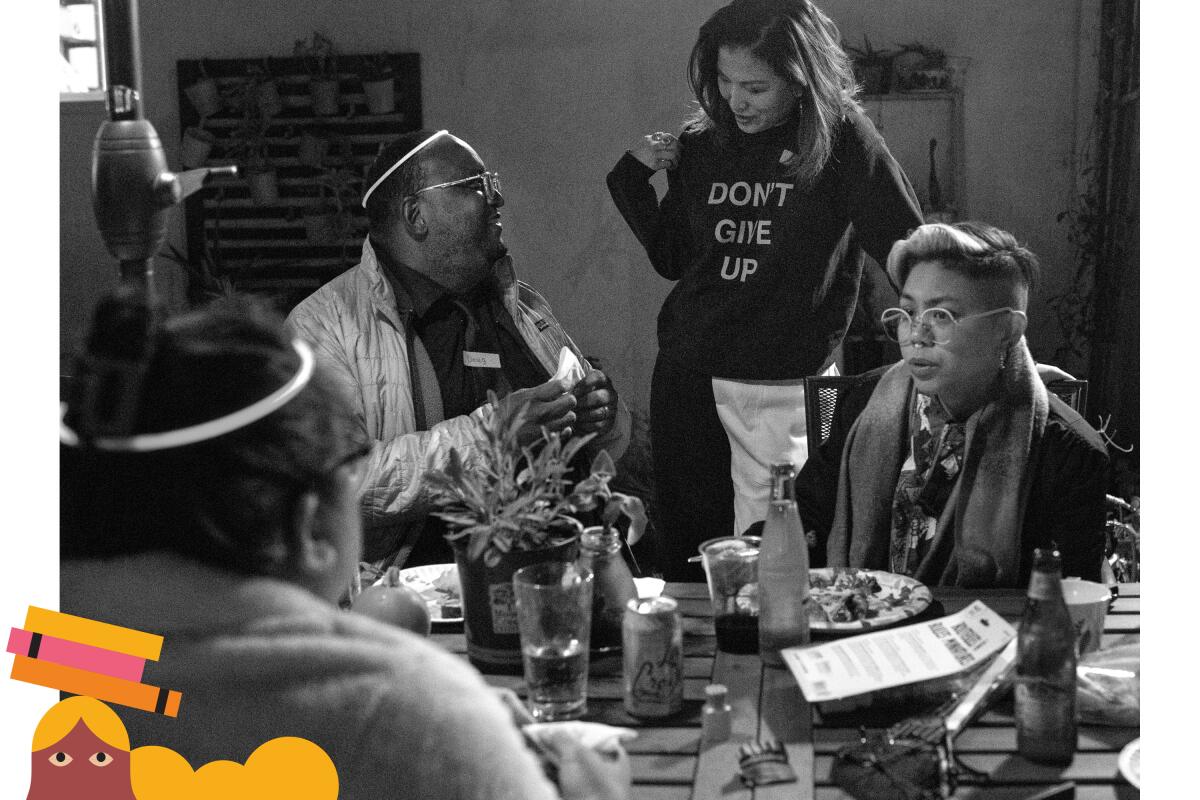
By Dorany Pineda
Inside an airy house in Alhambra on a February evening, writers Cherisse Yanit Nadal and Angela Peñaredondo fill their plates from a multicultural potluck spread out over a kitchen table: Thai fried rice, tacos de asada, steamed broccoli, samosas, drunken noodles, sushi, gyros, papaya salad and more.
Out in the sizable backyard, filling the chilly night air with chatter and laughter, is an equally eclectic group of authors: “Fiona and Jane” novelist Jean Chen Ho, Kaya Press managing editor Neelanjana Banerjee, “Beast Meridian” poet Vanessa Angélica Villarreal and her 7-year-old son, Joaquin, and about a dozen other members of the San Gabriel Valley Food Club.
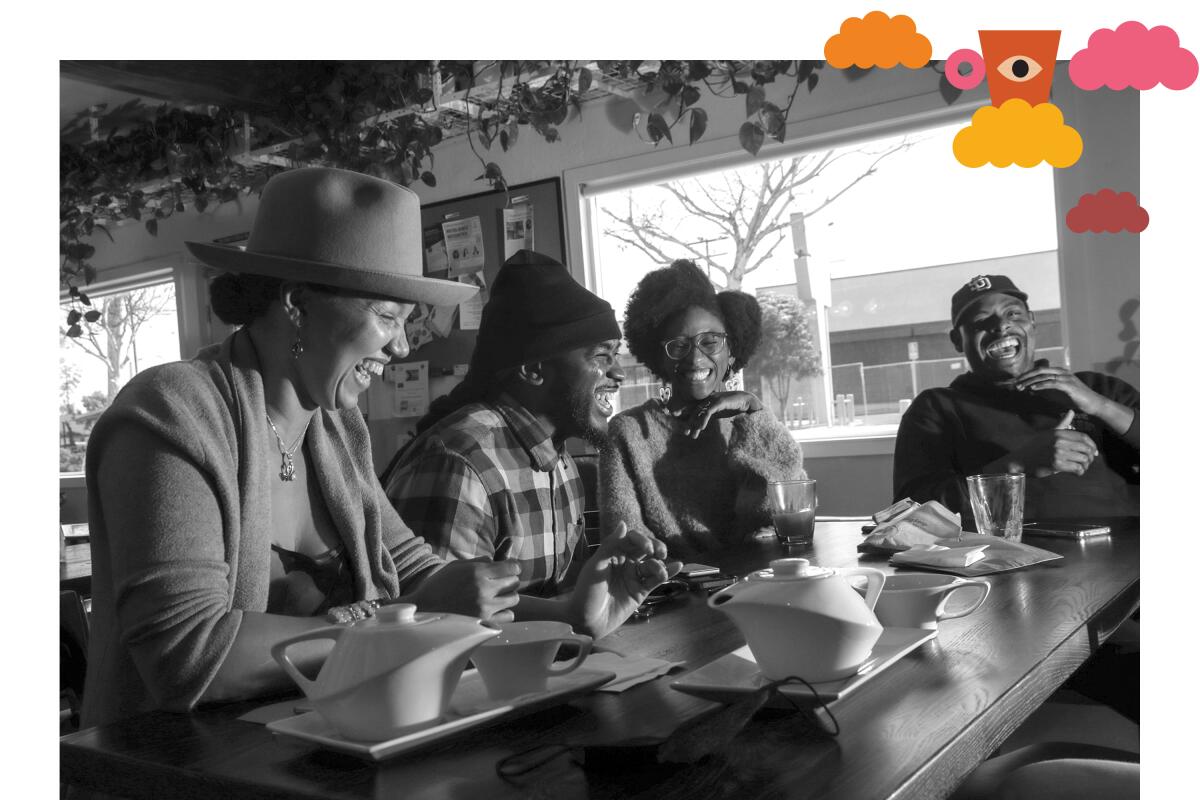
By Jireh Deng
Long Beach has a long and too often overlooked role in Southern California’s artistic history, from Beat happenings in the 1960s to the vibrant nexus of poetry, performance and music that thrives 60 years later. A small but influential subset of the scene sat around a table recently when Micah Bournes — Long Beach native, poet and musician — gathered his friends (and a reporter) over coffee to talk shop.
The Black artists assembled at Wrigley Coffee — Bournes, Shelley Bruce, Antonio Cortez Appling and Keayva Mitchell —are pillars in Long Beach’s open-mic community. Bournes and Bruce co-founded The Undercommons, a workshop and open-mic space focused on Black artists. Appling founded The Definitive Soapbox, one of Long Beach’s longest-running open mics, and also runs The Nest, a hip Southern-influenced brunch spot in Bellflower. Mitchell is such a connoisseur of L.A.-area open mics that she’s been called a “matchmaker” of people and venues.
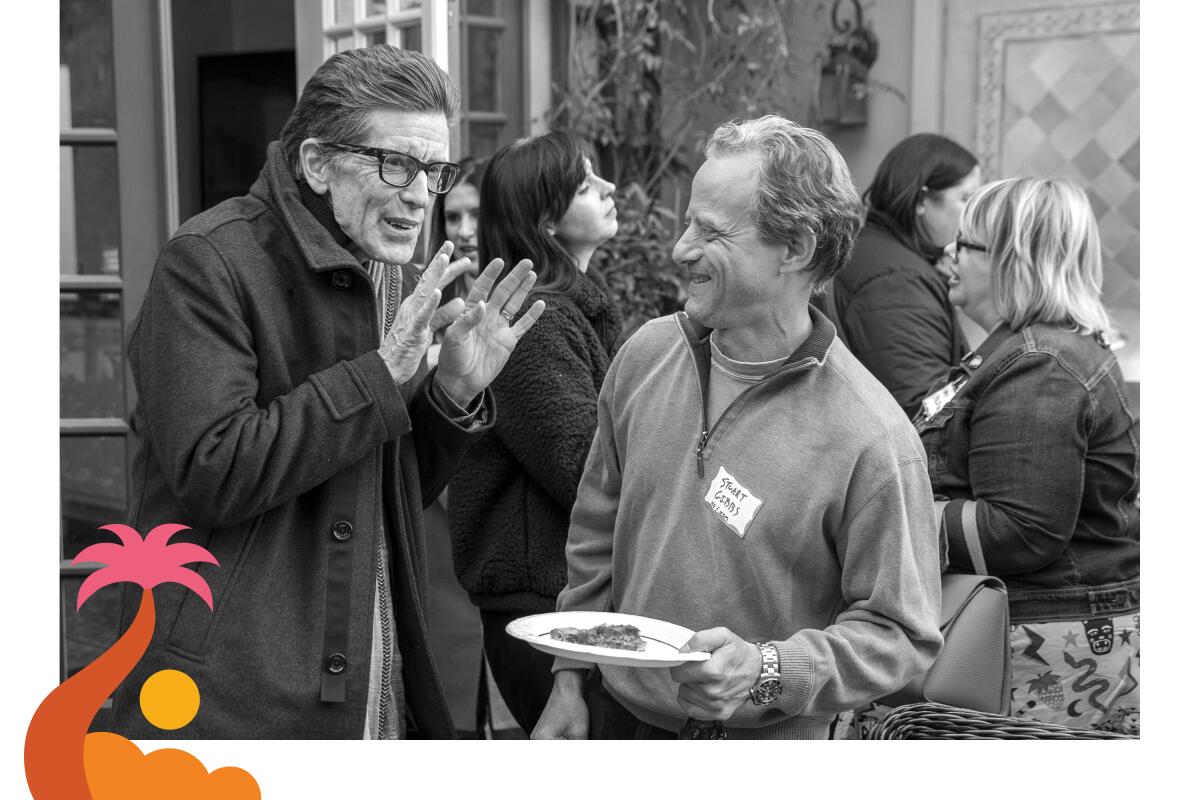
By Dorany Pineda
In a Larchmont Village backyard on a chilly afternoon, author Julie Buxbaum pulls out her phone, opens Instagram and shares some edits her 12-year-old daughter, Elili, made on a draft of her second book in the middle-grade mystery series “The Area 51 Files.”
Elili had circled the word “swimmingly” with a red marker and commented: “No one uses this expression.” Next to the title of Chapter 6, “Lies, lies and more lies,” she’d written, “What is this title??” On another page, she’d crossed out “new best friends” and replaced it with “besties.”
“My daughter actually edits my books for me now,” Buxbaum admits, addressing fellow authors Abdi Nazemian, Lauren Kate and Leslie Margolis. “I pay her to edit them, and she’s amazing! It’s literally the best money I spent.”
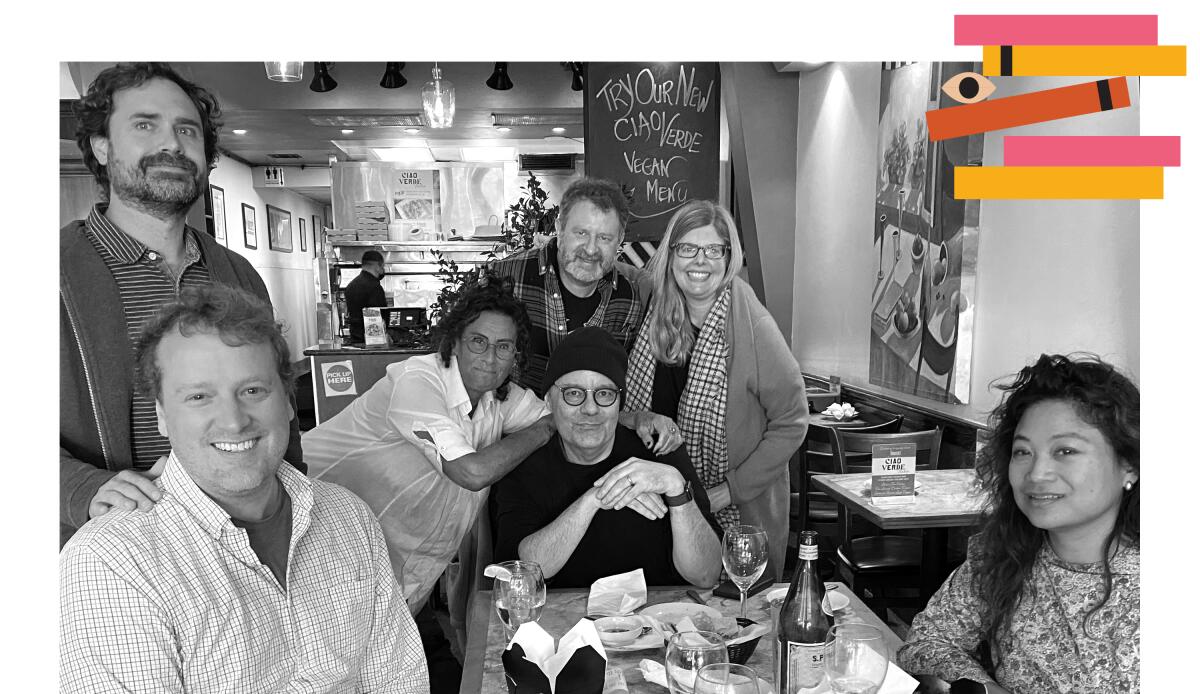
By Boris Kachka
Matthew Specktor grew up in Los Angeles, but like many of the writers gathered for lunch at Louise’s Trattoria on North Larchmont on a recent Tuesday, he spent formative years in New York having meals of a different tenor.
“I remember a night in the ‘90s when I was out with two very, very, very famous writers,” he said. “And I’m sitting there, and there’s lots of cocaine, and there’s arguing about Martin Amis, and I’m just thinking, ‘I’ve just got to go home, man. This isn’t anything; this is just two people with bad opinions!’”
Specktor, most recently the author of the memoir “Always Crashing in the Same Car,” soon high-tailed it back to L.A., a scene brimming with transplants from colder climes — and bolstered by writers who fight traffic and inertia to find each other.
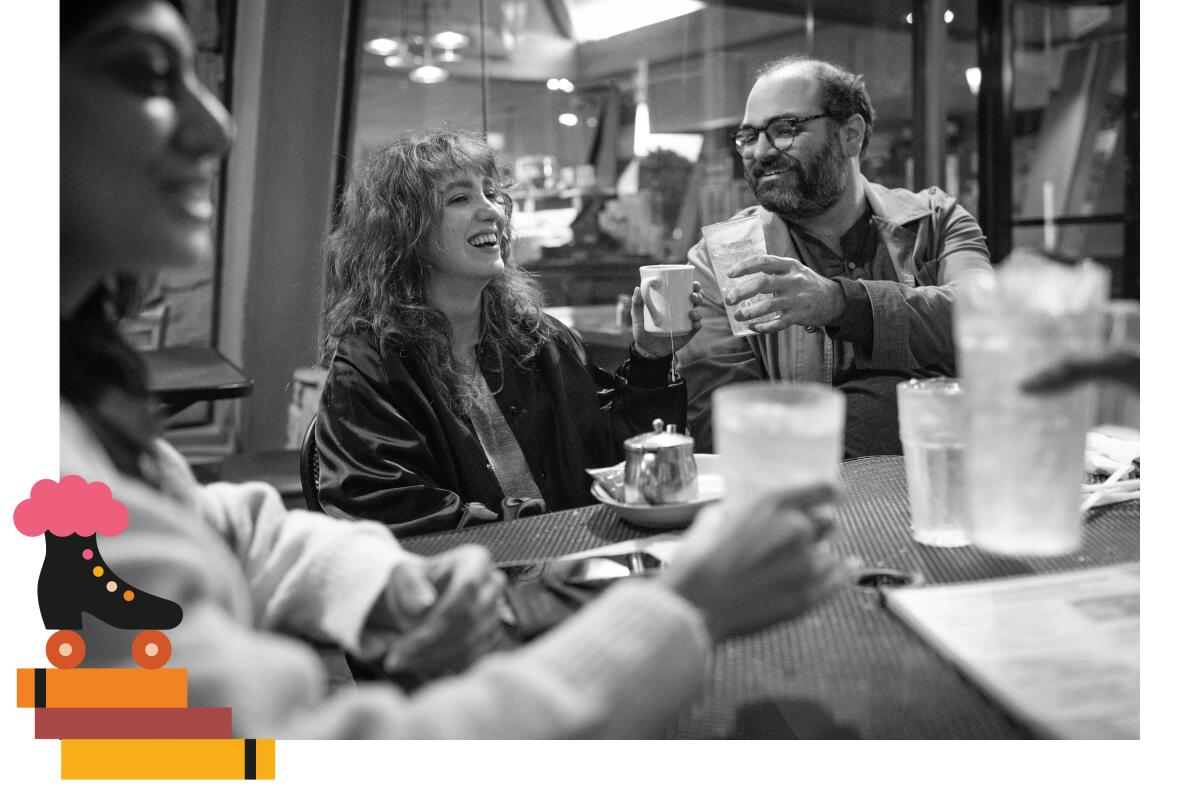
By Jireh Deng
“I don’t ever think about L.A. when I’m writing. It just happens to seep in because this is where I’m from,” Jeremy Radin told a group of three dozen people at Skylight Books on a Thursday evening. Los Angeles, he said, is “the American city of longing.”
Radin was in conversation with his friend Rhiannon McGavin to celebrate the release of the updated edition of his collection “Dear Sal.” Reading from it, Radin transported his audience from Los Feliz to another fantastical dimension, capturing L.A.’s transient, diasporic spirit.
McGavin and Radin are Jewish Angeleno poets, born and raised, both familiar with the densely woven fabric of immigrant neighborhoods that make up their home city. McGavin may joke that she’s a “rootless cosmopolitan” (riffing on an old antisemitic euphemism), but this place has rooted itself in her poetry as well. The two were joined for post-event dessert at the nearby House of Pies by poets Aman K. Batra and Keayva Mitchell, where they meditated on the city from its trees to its traffic, even as its wailing sirens forced weary pauses in the conversation.
Sign up for our Book Club newsletter
Get the latest news, events and more from the Los Angeles Times Book Club, and help us get L.A. reading and talking.
You may occasionally receive promotional content from the Los Angeles Times.